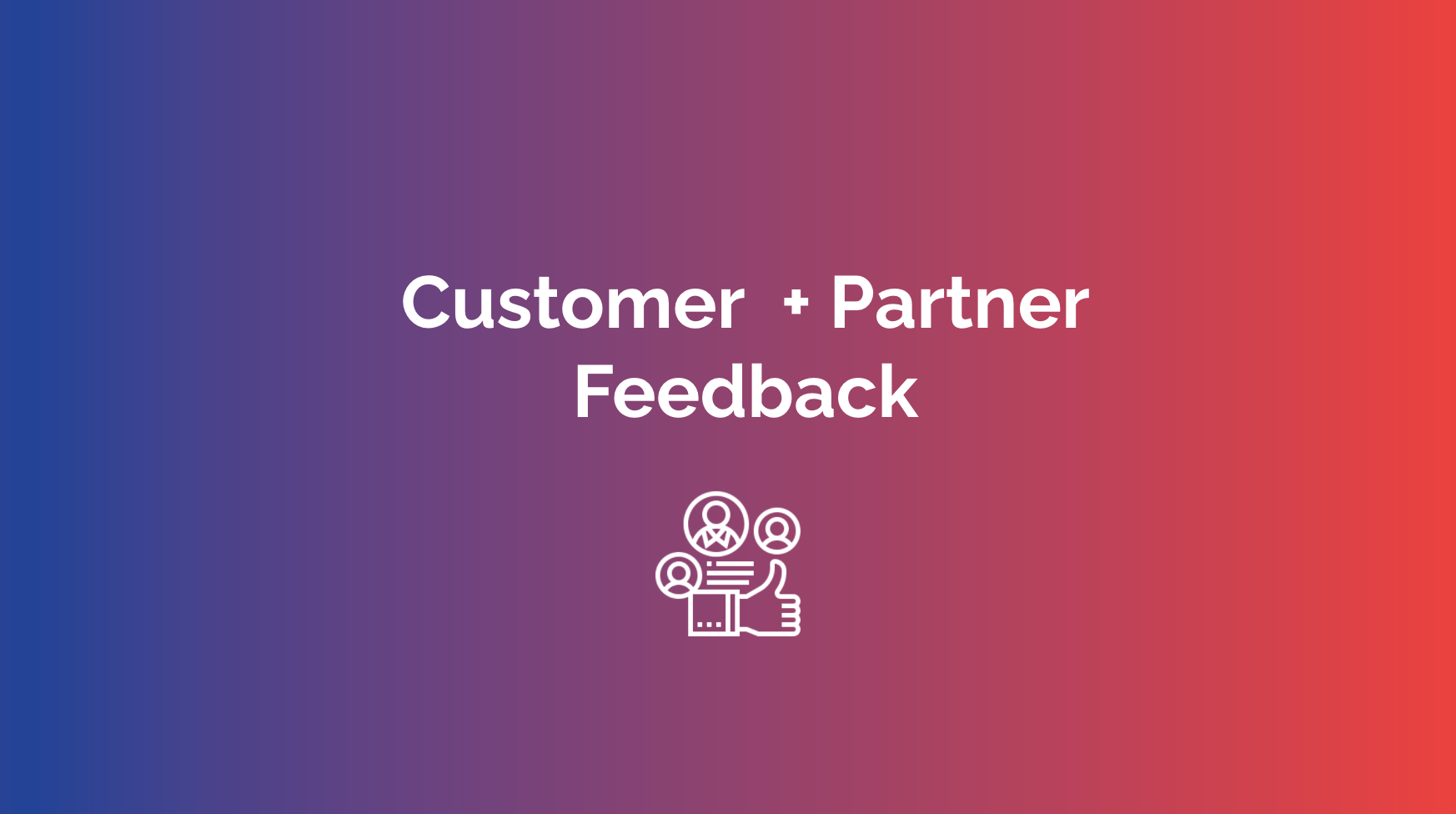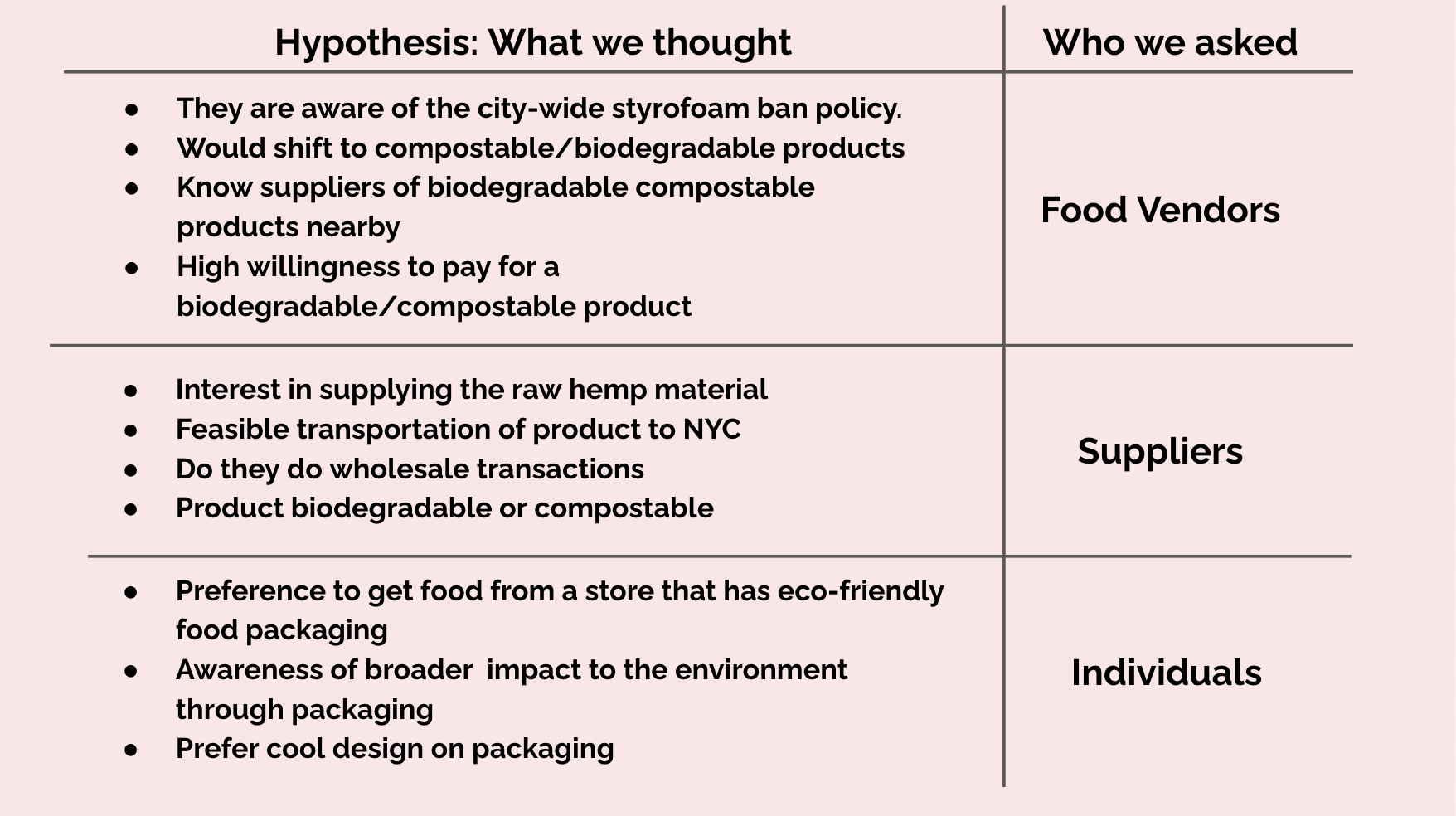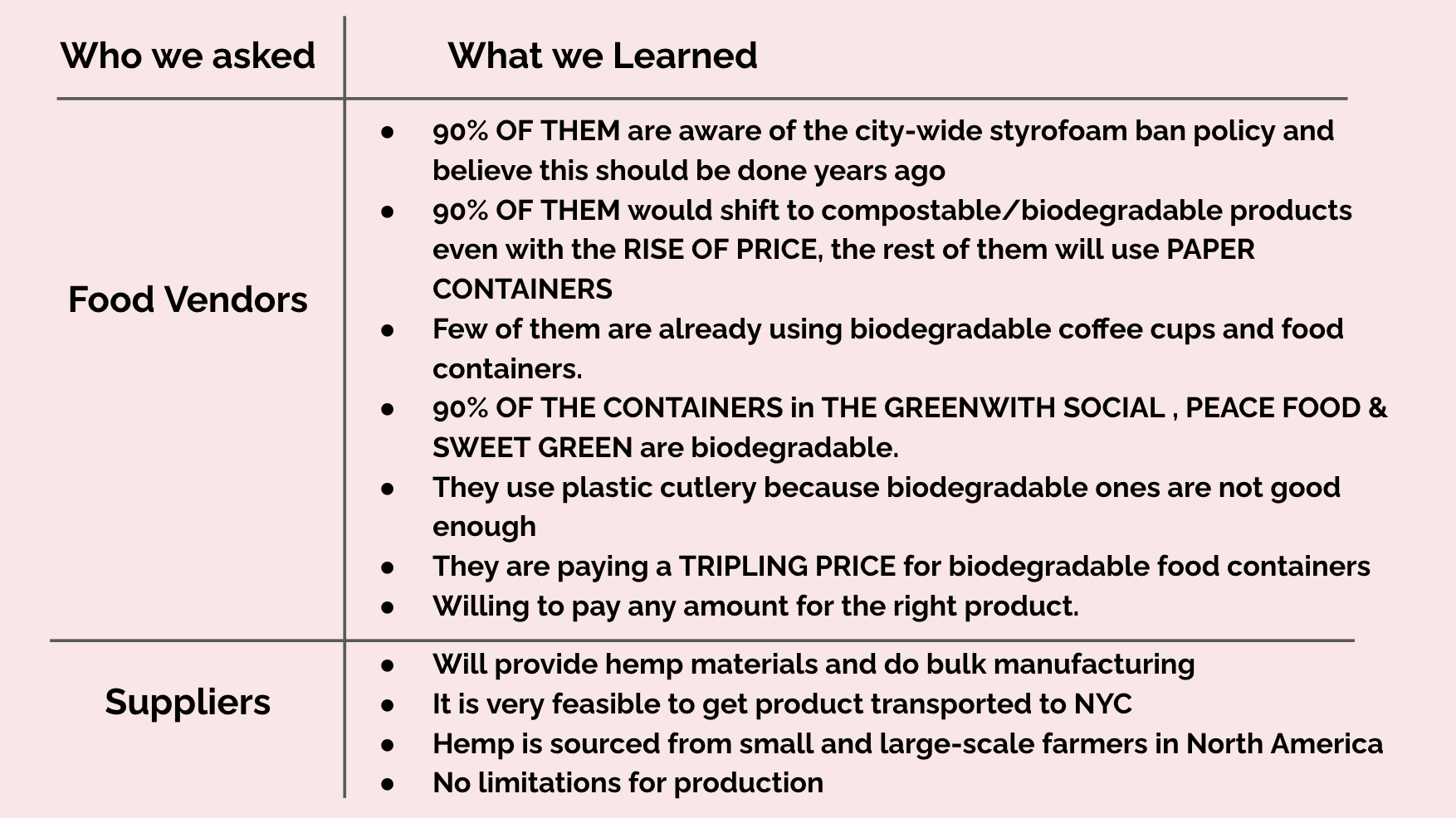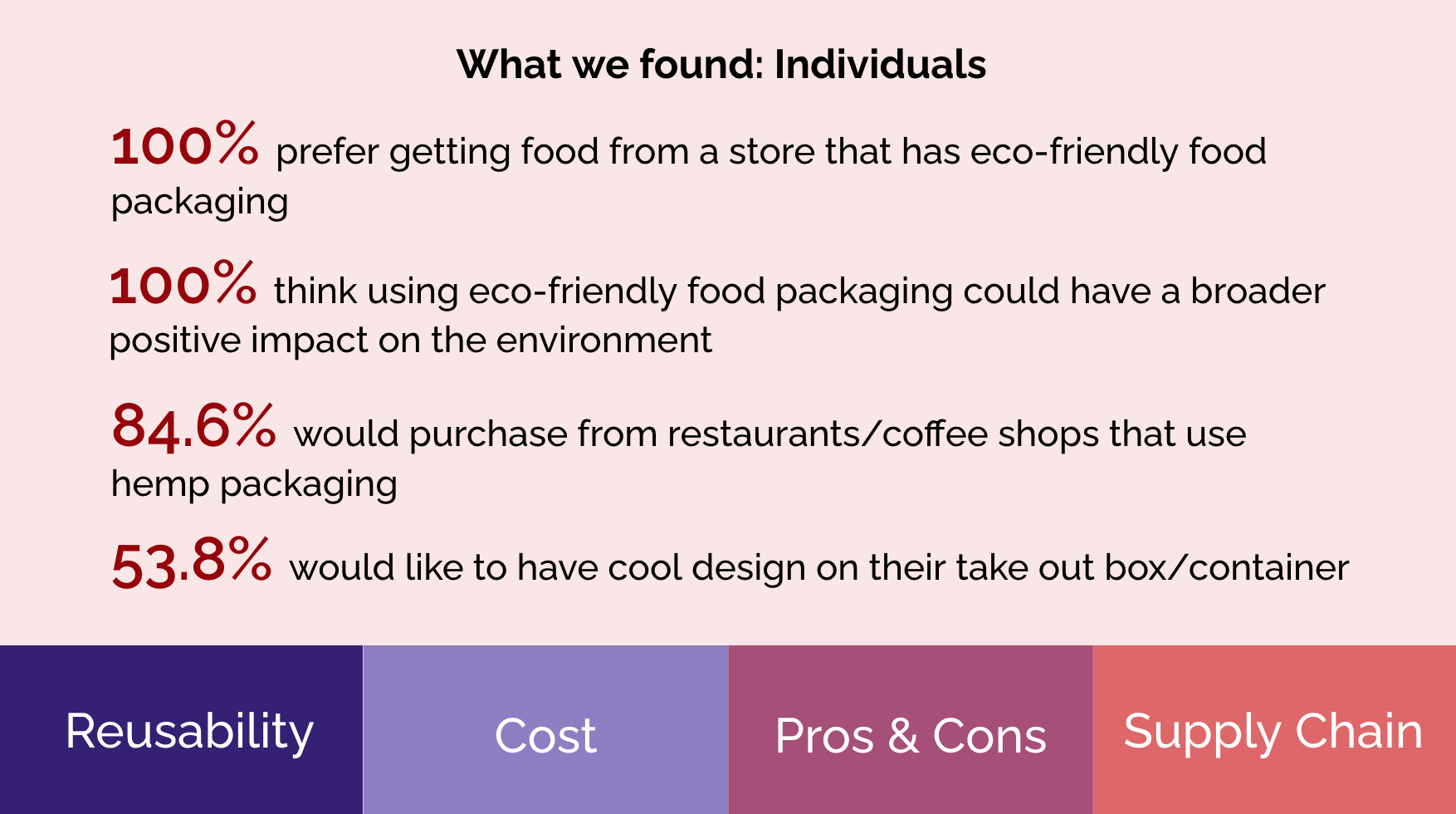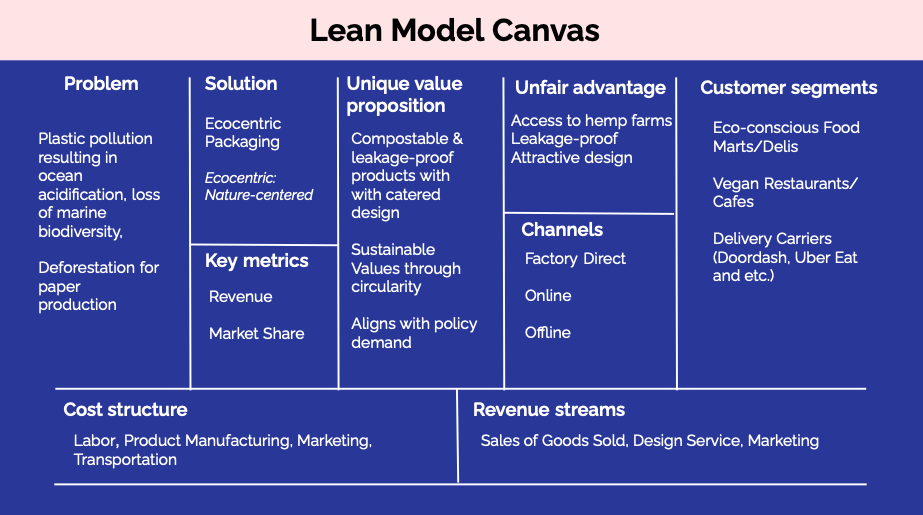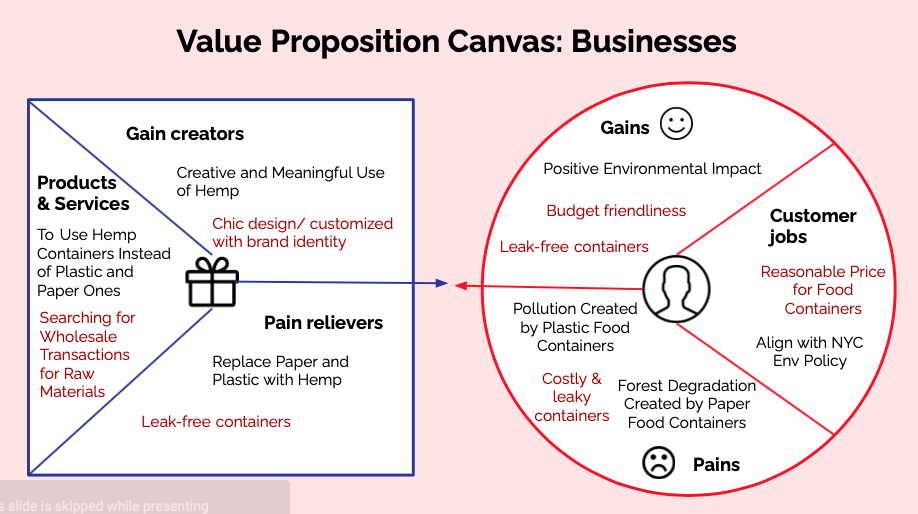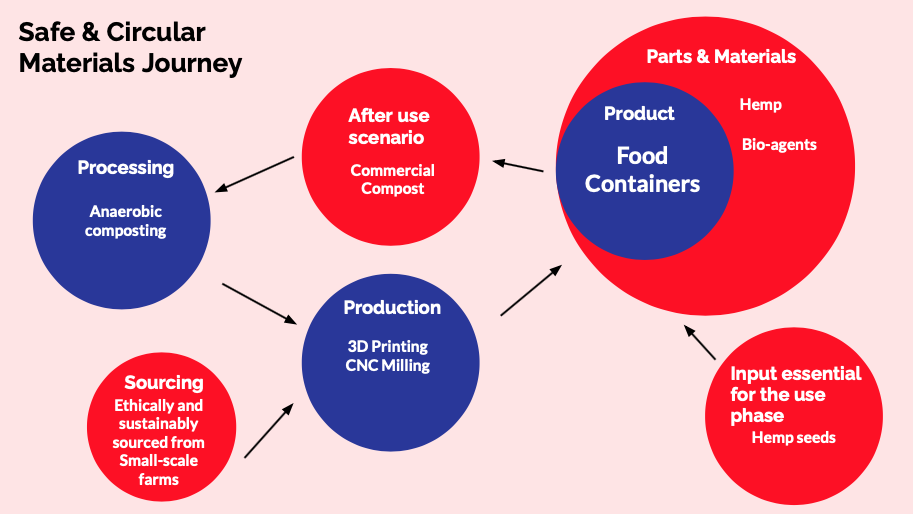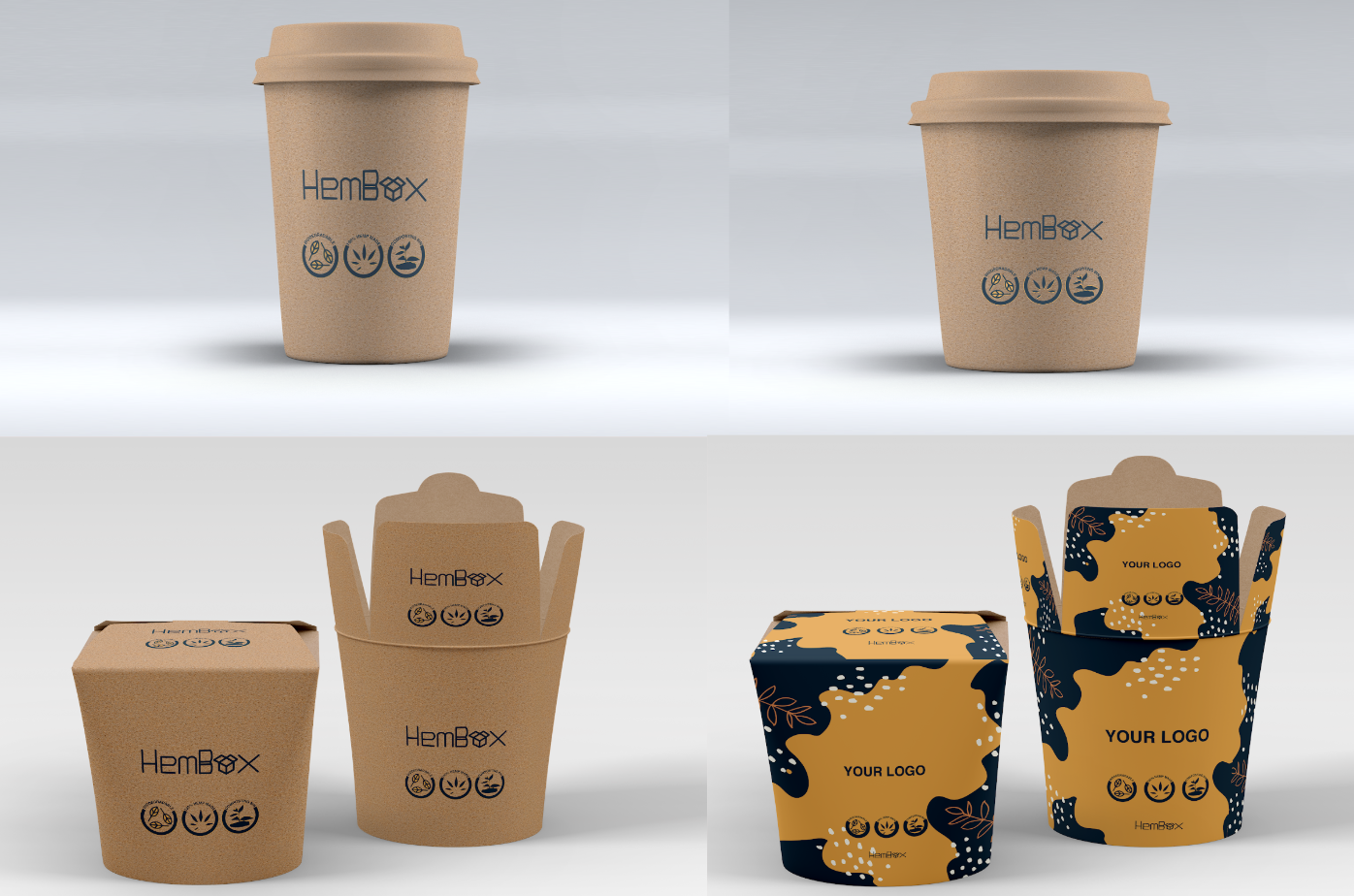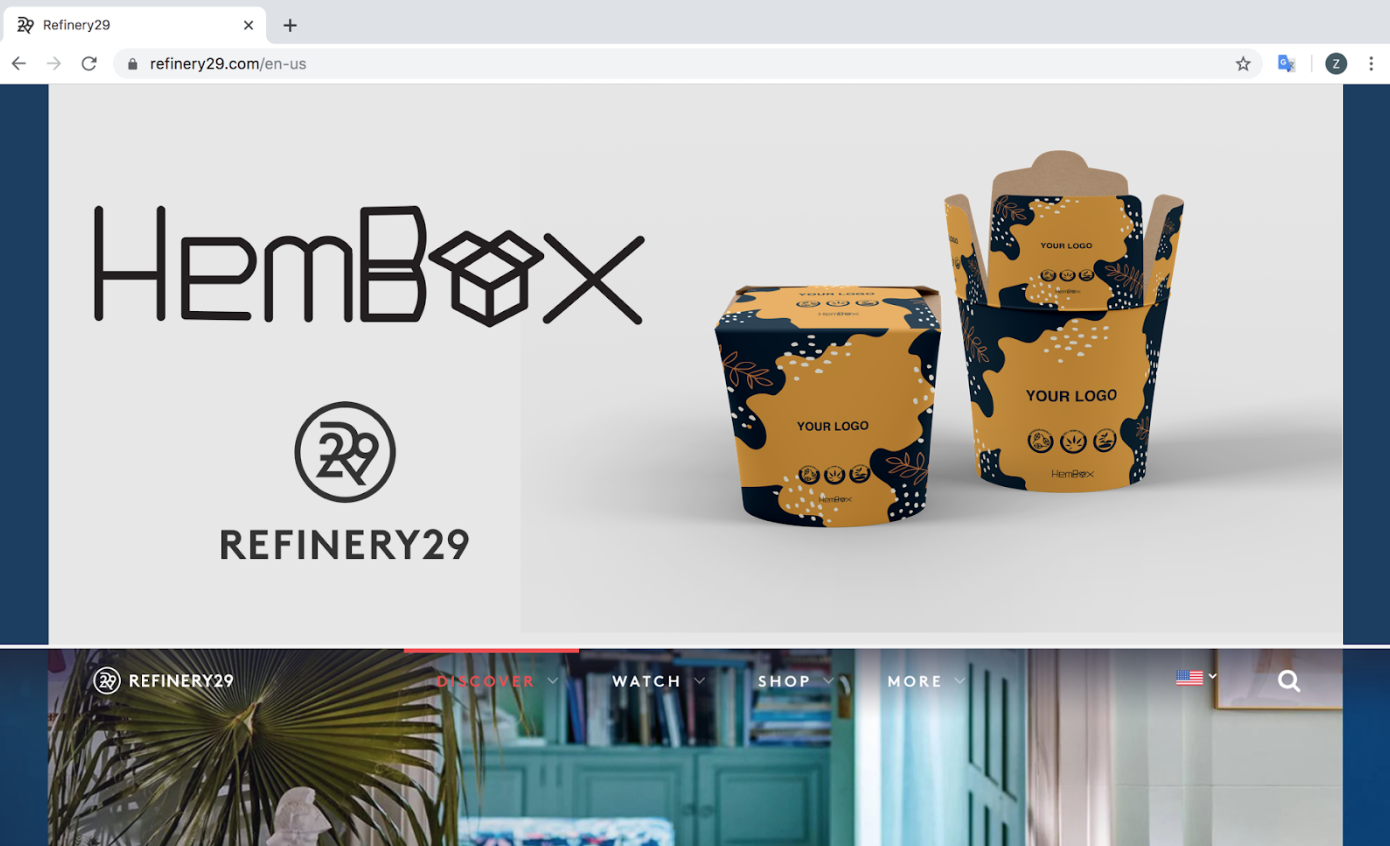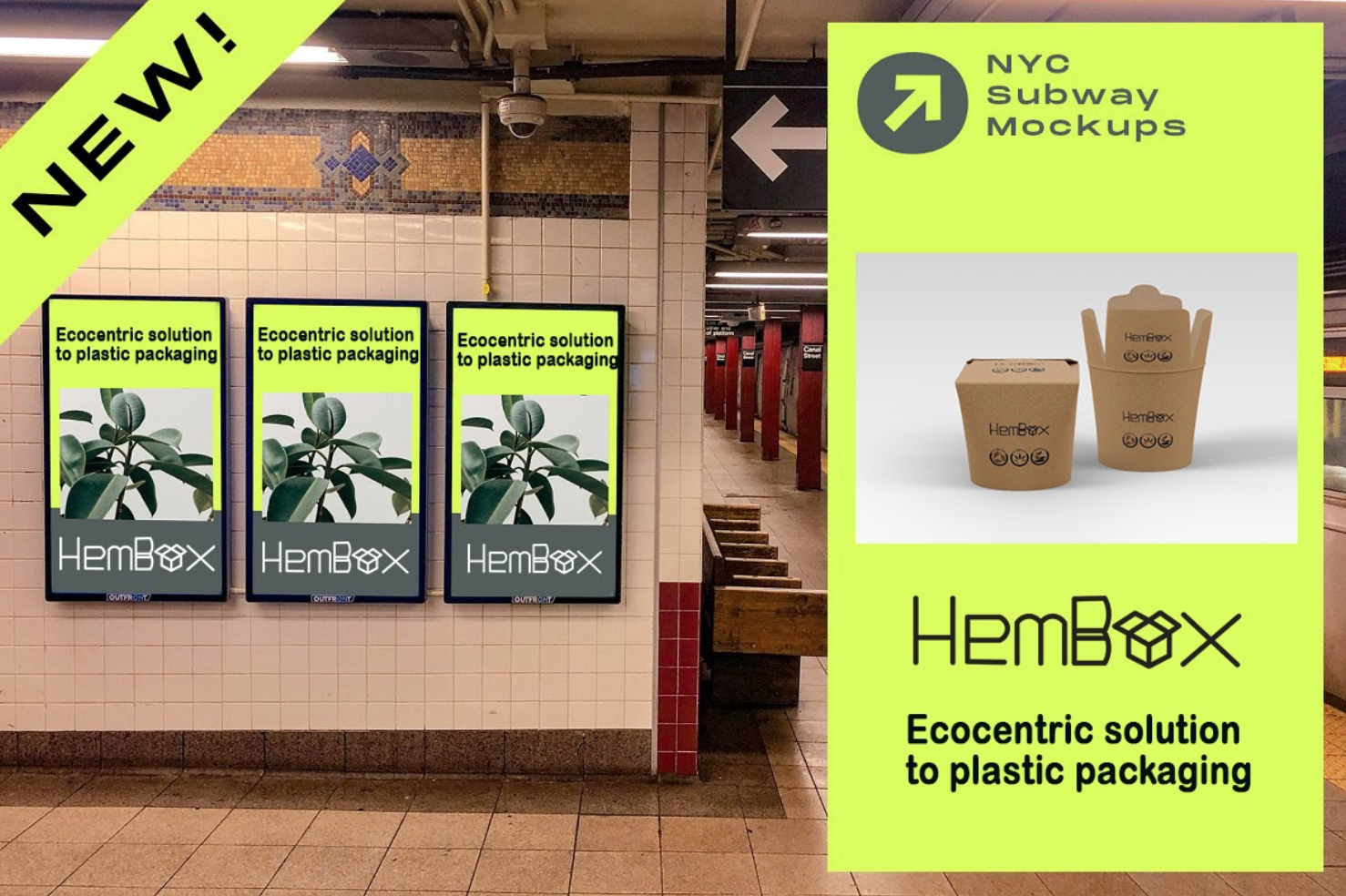HemBox
creating a future of healthy materials in packaging
Role: Design & Business Strategist
Team: Christian Tandazo, Lynch zhang, jennifer zhong
Main methods I used:
+ Value proposition canvas
+ Business model canvas
+ Circular product journey
+ Product roadmap & matrix
+ Market research & trend analysis
+ Stakeholder interview
+ Ecosystem map
+ Prototype iteration
The Challenge
We are currently consuming more resources than ever, exceeding the planet’s capacity for regeneration. What role will you play to do more and better with less? Building on the legacy of the Cumulus Green Award and the Kyoto Design Declaration, Cumulus Green 2020: For A Circular Economy calls for projects that focus on SDG 12 for responsible consumption and production.
The Proposed Solution
Following the styrofoam ban, New York state has passed the bill to ban single-use plastic bags from retail sales, effective March 2020. This policy calls for new market opportunities of healthy materials that can solve the economic and environmental issue plastic causes.
In response to this opportunity, the team has come up with a business idea for HemBox - ecocentric food packaging made from industrial hemp. HemBox aims to address the material scarcity for plastic products and alleviate socio-environmental burdens by providing hemp-based food packaging alternatives and introducing a culture of healthy materials.
The Process
The team did extensive market research to estimate the size of food packaging market, define competitive landscape, and map out stakeholders ecosystem. Interviews and surveys were also conducted with customers, vendors and suppliers in the greater New York area. The key insight was that vendors are willing to pay more for eco-friendly and compostable packaging, as long as they solve the leakage problem. The team then decided to focus on making compostable & leakage-proof products with catered design to brands.
Using lean model canvas, value proposition canvas and safe & circular materials journey mapping, the team built out the unique values for the products, as well as a viable business model. Half of the team focused on prototyping the product mockups and customer journey mapping, while the other half focused on financial model building and implementation strategies for HemBox.
The unique aspect of HemBox’s business model is the de-growth strategy. This strategy allows HemBox to:
prioritize well-being, sustainability, and equity over exponential growth
reduce intermediaries in the supply chain while invest in a local hemp farm after 3 years
take into account the biophysical limits of the Earth and current state of local economy
center company’s stakeholders around care and democratic participation


